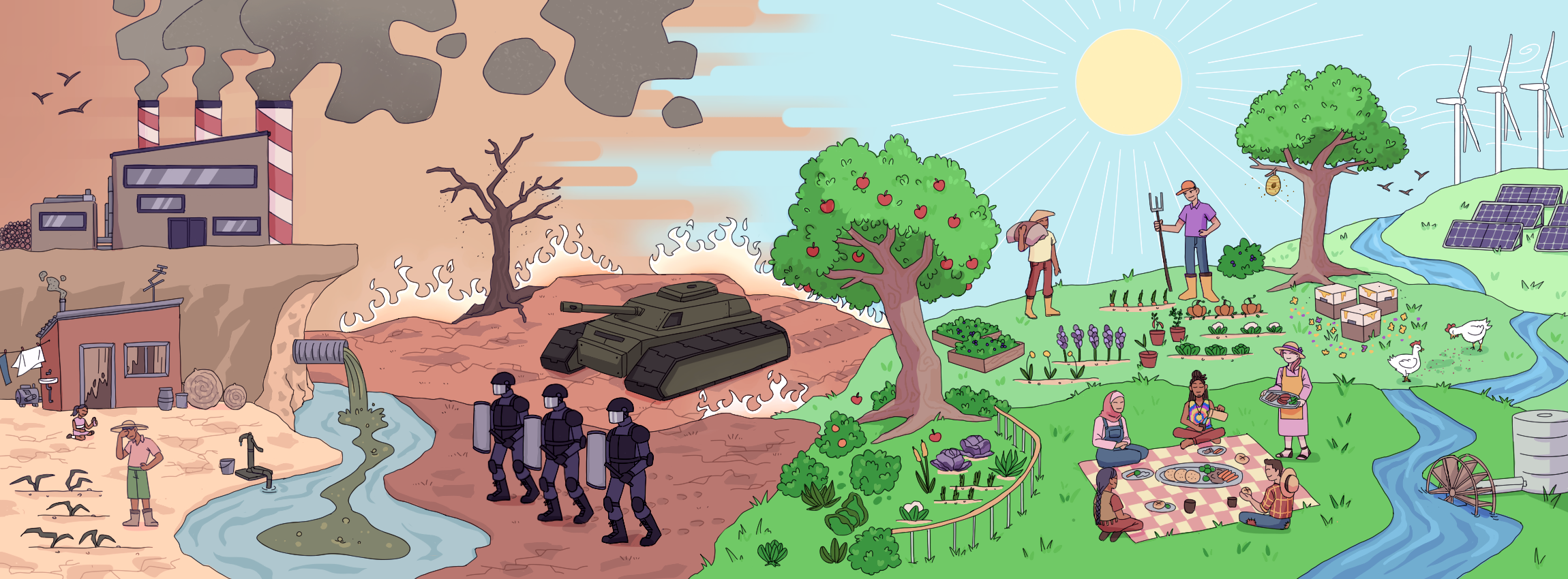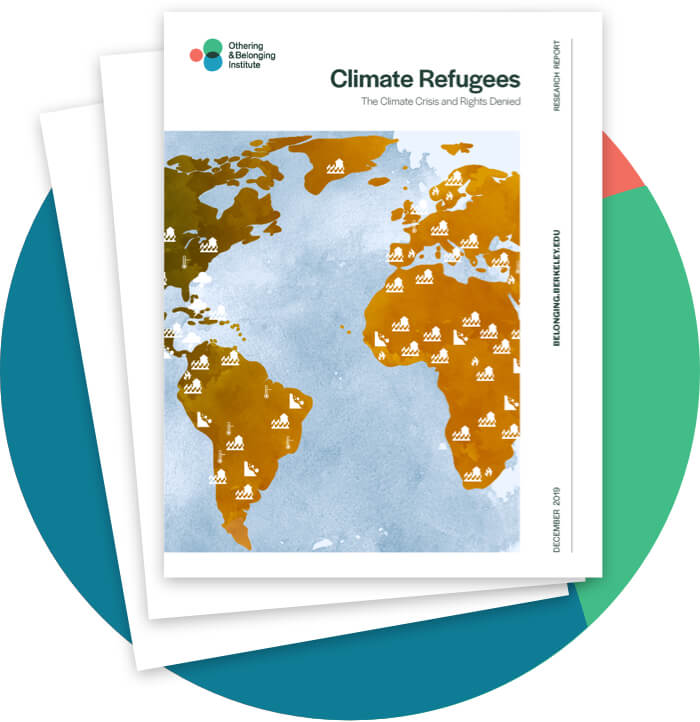The Global Justice Program at the Othering & Belonging Institute at UC Berkeley examines and exposes the structures that contribute to the marginalization of communities within the United States and globally, and envisions ways of dismantling such structures to advance an inclusive, just, and sustainable world. In this project, Climate Crisis, Displacement, and the Right to Stay, we carry out this work by advancing groundbreaking approaches to exposing the dire impacts of the climate crisis and building climate resilience. We do so by centering the world's most marginalized and exploited, particularly those who are forcibly (internally and externally) displaced due to various environmental dynamics in their home communities. We address how these forces are not only exacerbated by the climate crisis, but also largely born of the extractive and exploitative structures that have given rise to the climate crisis itself. Through the research tools, analyses, and recommendations that comprise this project, we aim to advance protections for peoples displaced by the climate crisis while fostering the conditions for climate resilience and thriving communities where they are from.
The Right to Stay
Despite the growing intensity and scale of the crisis at hand, protections for climate-induced displaced persons forced to cross international borders are limited, piecemeal, and not legally binding. This project, Climate Crisis, Displacement, and the Right to Stay, aims to connect demands for recognizing the rights of people displaced by the climate crisis and across international borders to the transformational changes needed to materialize peoples’ rights to stay home and thrive within inclusive, just, and climate-resilient communities.
Thus, what we conceptualize as the “Right to Stay” is not only the right for climate-displaced people to safely resettle when their lives are uprooted. It is also the right to stay in place amidst the climate crisis, and against the extractive and exploitative structures that are forcing them to move. To aid the transition to climate-resilient societies and regenerative economies globally while protecting the world’s most marginalized and exploited people and communities, we define the “Right to Stay” as the demand for:
- Legal rights for all peoples displaced by the climate crisis, within and across national borders.
- Climate reparations to countries of the Global South, whose vulnerability to the climate crisis follows centuries of Global North extractive and exploitative political and economic activity.
- Just transitions that democratize, decentralize, and diversify economic activity and (re)distribute resources and power.
Climate Displacement and Resilience Database
Currently, over 70 percent of people displaced worldwide are from the most climate-vulnerable countries–largely from across the Global South. Our interactive Climate Displacement and Resilience Database illustrates how and why this is the case while also providing the information needed to develop recommendations and strategies in service of the “Right to Stay.” The database does so by joining global data on climate displacement with global data on climate event exposure and vulnerability, emissions goals and compliance, governance and capacity building for climate resilience and mitigation, and climate finance needs and challenges. As part of the database, and in order to identify and support ongoing and future efforts to build climate resilience, we have developed dozens of case studies on the experience and activities of climate vulnerable countries. Collectively, we aim for this database to serve as a compelling research tool that will aid and inform the work of impacted communities, civil society, and policy and lawmakers who are committed to protections for peoples displaced by the climate crisis and the changes needed for an inclusive, just, and sustainable world.
Our Team
Lead Researchers
Student Research Assistants
- Anna Palmer, UC Berkeley
- Charlotte O'Keefe Stralka, UC Berkeley
- Dalia Elkalifa, UC Berkeley
- Dimitri Diagne, UC Berkeley
- Lamisa Mustafa, UC Berkeley
- Lauren Gonzalez, UC Berkeley
- Namrata Deepak, UC LA
- Ria Gambhir, University of Toronto
- Tali Braun, Oberlin College
- Tarannum Sahar, UC Berkeley
- Yehya Abuzaid, UC Berkeley





